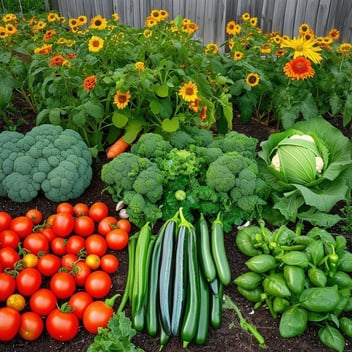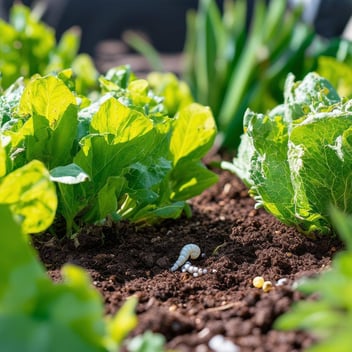Seasonal Planting: What to Grow and When in South East Queensland
Introduction
South East Queensland's subtropical climate offers gardeners a unique opportunity to cultivate a diverse array of plants year-round. By aligning planting schedules with the region's distinct seasons, gardeners can optimize growth and yield, ensuring a bountiful and resilient garden.
Understanding South East Queensland's Climate
Characterized by hot, humid summers and mild, dry winters, South East Queensland experiences significant seasonal variations. Spring and autumn serve as transitional periods, offering moderate temperatures ideal for establishing new plants. Recognizing these climatic patterns is crucial for successful gardening.
Spring Planting (September to November)
As temperatures rise and daylight increases, spring becomes an ideal time to plant:
-
Vegetables: Beans, beetroot, broccoli, capsicum, carrots, cucumbers, eggplant, lettuce, melons, pumpkins, radishes, silver beet, sweet corn, tomatoes, and zucchinis thrive when sown in spring.
-
Fruits: Melons and watermelons flourish when planted during this season.
-
Herbs: Basil, chives, coriander, dill, mint, oregano, parsley, sage, and thyme are well-suited for spring planting.
Summer Planting (December to February)
The intense heat and humidity of summer necessitate selecting resilient, heat-tolerant plants:
-
Vegetables: Beans, capsicum, cucumbers, eggplant, lettuce, melons, pumpkins, radishes, silver beet, sweet corn, tomatoes, and zucchinis can be planted, keeping in mind the need for adequate water and shade.
-
Fruits: Tropical fruits like bananas and pineapples thrive in summer conditions.
-
Herbs: Heat-loving herbs such as basil and lemongrass can be cultivated during this period.
Autumn Planting (March to May)
With cooler temperatures and reduced humidity, autumn is ideal for establishing:
-
Vegetables: Broccoli, cabbage, carrots, cauliflower, lettuce, onions, peas, radishes, silver beet, spinach, and turnips are well-suited for autumn planting.
-
Fruits: Strawberries can be planted in autumn for a spring harvest.
-
Herbs: Parsley, coriander, and dill thrive when sown in autumn.
Winter Planting (June to August)
Despite milder winters, certain cold-hardy plants can be cultivated:
-
Vegetables: Broad beans, broccoli, cabbage, carrots, cauliflower, lettuce, onions, peas, radishes, silver beet, spinach, and turnips are suitable for winter planting.
-
Fruits: Citrus trees, such as oranges and lemons, can be planted in winter.
-
Herbs: Thyme, sage, and rosemary are hardy herbs that endure winter conditions.
Year-Round Planting Opportunities
Certain plants adapt well to various conditions, allowing for continuous cultivation:
-
Vegetables: Leafy greens like kale and Swiss chard can be grown year-round with appropriate care.
-
Herbs: Perennial herbs such as mint and oregano provide ongoing harvests.
Implementing succession planting ensures a steady supply of fresh produce throughout the year.
Soil Preparation and Maintenance
In South East Queensland's subtropical climate, effective soil preparation is paramount for a thriving garden. Begin by assessing your soil's composition and drainage capabilities. Incorporating organic matter, such as compost or well-rotted manure, enhances soil structure, fertility, and moisture retention. For areas with shallow soil, consider building up garden beds to a height of 200–300mm to promote root development and stability.
Regularly testing soil pH and adjusting as necessary ensures optimal nutrient availability for your plants.
Watering practices should be tailored to seasonal demands. In the warmer months, early morning irrigation minimizes evaporation and allows plants to absorb moisture before the day's heat intensifies. Utilizing drip irrigation systems or soaker hoses delivers water directly to the root zone, reducing wastage. Grouping plants with similar water requirements facilitates efficient watering and promotes healthier growth.
During cooler seasons, reduce watering frequency to prevent waterlogging and root diseases.
By meticulously preparing your soil and adopting seasonally appropriate watering strategies, you lay a robust foundation for a productive and resilient garden in South East Queensland's unique climate.




